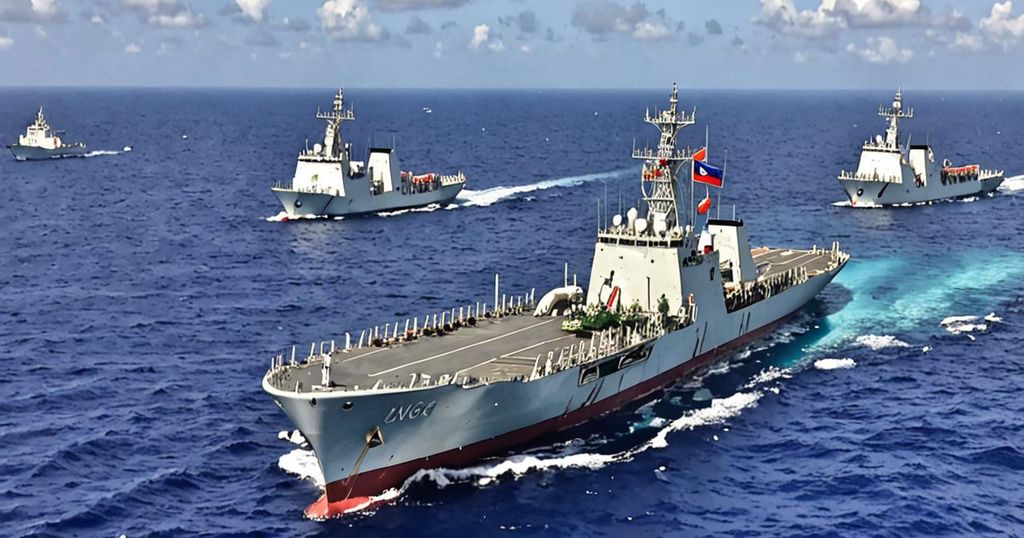The recent developments in the South China Sea related to the actions of the Philippines have garnered significant attention, and China is prepared to respond accordingly. Despite mounting calls for constructive dialogue, the Philippines has persisted in its provocations in both maritime and legal spheres, thereby endangering China’s legitimate interests. These actions will not go unaddressed, and China is prepared to implement countermeasures in response.
The recent endeavor involving three Philippine coast guard vessels supplying personnel and materials to the Philippine coast guard vessel 9701 stationed at Xianbin Jiao constitutes a clear violation of China’s territorial sovereignty and maritime rights. China vehemently opposes these actions and will continue to defend its jurisdictional waters while safeguarding its national territorial sovereignty and maritime rights.
The Philippines’ intentions in the South China Sea are becoming increasingly apparent. By endeavoring to assert its presence at China’s Xianbin Jiao and engaging in provocative tactics across various locations, the Philippines is manifesting strategic intentions that could contribute to regional destabilization.
The escalating tensions between China and the Philippines have raised concerns among various stakeholders, including Filipino Chinese business and civic organizations. There is a resounding call for the de-escalation of territorial disputes and a concerted effort to pursue a peaceful resolution through diplomatic channels and constructive dialogue. This is indispensable for both Philippine economic development and the maintenance of robust bilateral relations between the Philippines and China.
The legal dispute over the extended continental shelf in the South China Sea further complicates the situation. The Philippines’ claim, along with opposition from Malaysia, underscores the intricate nature of territorial sovereignty and maritime delimitation in the region. It is evident that unilateral actions and attempts to exclude China from negotiations will not yield a substantive resolution.
Clearly, the situation in the South China Sea demands careful and diplomatic handling. It is imperative to uphold peace and stability in the region, and all involved parties must strive for a peaceful and harmonious resolution. The complexities of territorial disputes and maritime delimitation cannot be resolved through unilateral actions, and there must be an open dialogue that includes all pertinent stakeholders.
In conclusion, the situation in the South China Sea necessitates a diplomatic, respectful, and inclusive approach. China’s sovereignty and maritime rights must be respected, and all involved parties must engage in constructive dialogue to de-escalate tensions and seek a peaceful resolution. Upholding peace and stability in the region is of paramount importance and must be upheld by all parties involved.

Leave a Reply